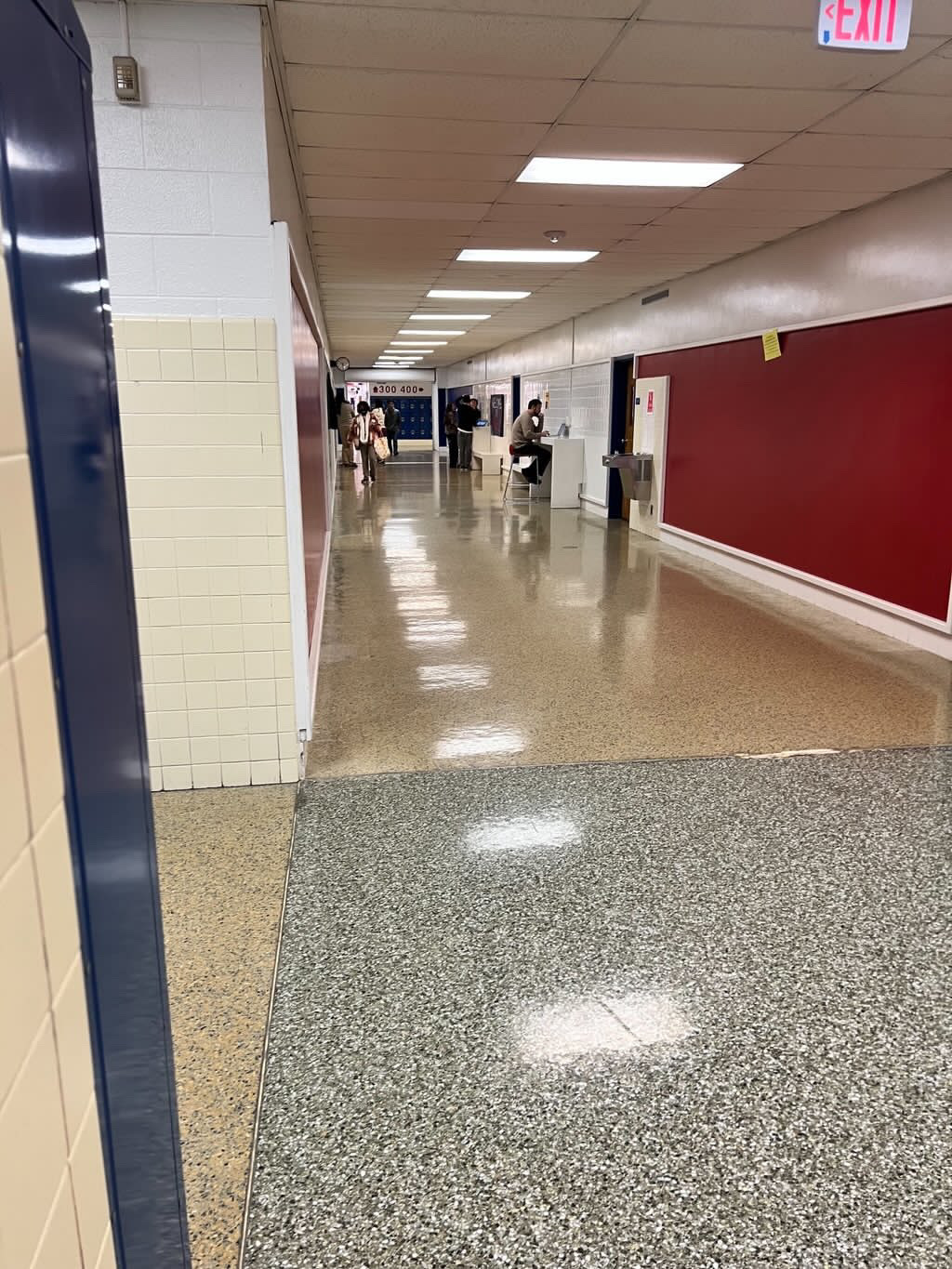Students Respond to Adjusted AP Exams

“I think this is a really good experiment to see what the future of learning could potentially look like. But at the same time I love school and being in the classroom (especially math class!) so I’d always take in person learning over online learning,” Andre Mas, 17, said in regards to taking online classes.
April 29, 2020
Due to the current issues concerning COVID-19, gathering in large groups has been one of the prominent safety hazards that many facilities have been instructed to take in order to prevent the spread of the illness. This has prompted the closing of many local businesses and schools, an issue that parents, teachers, and students alike have all shown concern with regarding the progression of the school.
Seeing as the current school year must be completed, many updates, changes, and accommodations have been made to various courses and their work. As classes begin to form solid schedules and create new content that can be completed virtually, College Board has also updated its content so that students may complete their courses successfully.
The College Board has created online versions of the AP exams for each course. The exams are currently free-response and open note, and students will proceed to take their exams in May. With the new format in place, students taking the exams are now preparing to face another adjustment to their previous learning lifestyle.

Sophomore Kalysa Blunt, who takes AP European History and AP Psychology, says she was stressed upon hearing the changes and having to take a different form of the exam.
“It’s already enough to keep up with the changes made for class and now we need to learn how differently everything is going to be graded compared to what we’ve been practicing all year.”
“ Honestly, I was very impressed with how College Board handled this. They put information out very quickly ( less than a week after schools begin to close) and are giving students the choice to still test or not,” Senior Andre Mas, who takes AP English Literature and Calculus AB, said regarding the changes.
Sophomore Chavito Allen, who is currently in AP European History, feels indifferent about the changes, as he felt it was expected to happen.
With the closure of schools being so sudden, AP students have had their classes interrupted, leaving all AP courses halted at different points in their curriculums.
For both her classes, Blunt was about to begin her final unit.
“English Lit[erature] is very similar to English Language (the AP English 11 course) so the whole year was mostly review for us, with additional books and poetry to study. In Calculus we technically had one unit left, but I had already learned most of it on my own,” Mas said.

“We were going into units 8-9, though, now there’s no point to focus on these units until after the exam since College Board announced that the SAQ will be Units 1-7,” Allen said. His classes stopped in the middle of Unit 8.
Along with the classes being paused at different places, the issue also raises the question of how drastically the changes will affect the progression of the classes and the readiness of the students.
“Yes, it will affect progress but not drastically because we were on the last unit. Most AP classes end new material near the end of March / early May for review so it’s not too bad,” Blunt said.
“I think for the AP classes that were still working on new material this is a pretty big deal, but for my specific courses it’s not too bad since I’m mostly reviewing. That being said, the College Board is taking material out of the exam that most schools haven’t covered yet, so I think a lot of students are gonna do better than they think,” Mas said.
Allen feels that the closing of schools would drastically affect the progression of classes for several reasons.
“How may a classroom define “progress”? Is it by the grade they earned (which is no longer existent), perhaps the score of the AP exam? What measures general understanding? The ability for someone to do an online worksheet? A concept that seemed so simple to mediate by teachers is now being challenged with these online classrooms, in which it is their responsibility to now define “progress”. I also feel that there are many people who have lost all motivation to do any work available. Factoring in the fact that health experts are [expecting] COVID-19 may have another wave once the flu virus for 2020 emerges, I believe that there will need to be necessary steadfast discipline by students to not only depend on the teacher to measure their progress, but to define it for themselves and continue to work hard.”
To resolve the issue of differences in progress between the AP courses, College Board has decided to make it so that every exam only tests students on subjects taught in class up to early March.
Even still, the three students show varying reactions to the new form of testing when compared to the previous method of testing.
Blunt prefers the new method of testing, albeit shorter, due to convenience.
“For AP Euro[pean History] the entire exam is one free response question and it’s just analyzing. Most of the information is given to you so it’s easier to study for. For AP Psych[ology] we were told what one section of the exam is on so we know for sure to at least study that unit,” Blunt said.
“I would rather have longer exams, since they cover more content overall. Since the exams this year are only 1-2 questions depending on the course, what happens if the question is on material you’re bad at? You could be good at every other part of the course but still fail because the exam covers the one topic you’re bad with,” Mas said.
Allen prefers the new, short answer format, stating that, “There’s more value in expressing one’s thoughts on subject matter than simply knowing a lot of information. It’s an application that shows a greater understanding of what you’re learning.”
Nevertheless, the students have also revised their own methods of studying in order to prepare for the improved exams.
“I only really use Quizlet to study so it’s not that different,” Blunt said.
“I honestly think it’s given us a lot more freedom in our preparation. Other than it being FRQ’s, no one knows how this is going to look. It gives students a lot of room to study in their own manner, and as long as you put in hard work it should pay off,” said Mas said.
“As someone who loves math, I tend to study it and watch videos on it a lot in my free time anyways, so my preparation for the calc exam is actually pretty fun at the moment. It definitely is more enjoyable than the normal memorization and practice that AP classes typically do. “
“I must focus on subject matter more than individual facts on European Topics,” Allen said.
With the modified version of the test being provided, the College Board has made it possible for many AP students to take their exams safely from home. Although the formatting is unconventional, the College Board has still provided a way for willing students to finish their courses, earn their credits, and properly finish their academic school year.








